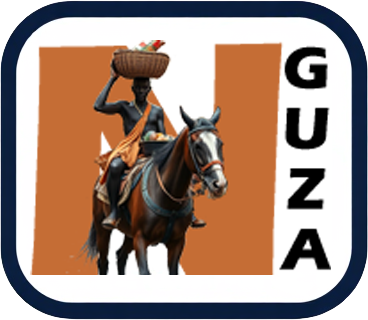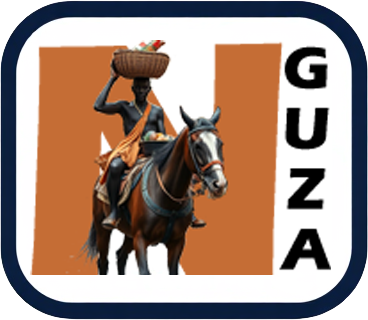The Asia Pacific herbal supplements market, valued at USD 47.10 billion in 2023, is projected to grow at a robust CAGR of 9.4%, reaching USD 105.64 billion by 2032. This growth is attributed to increasing consumer awareness about preventive healthcare, a strong cultural heritage of traditional medicine, and the rising popularity of plant-based wellness products across countries like China, India, Japan, and Australia.
Market Overview
Herbal supplements, also known as botanical supplements or plant-based nutraceuticals, are dietary products derived from herbs and natural plant extracts used to enhance health and wellness. These supplements include capsules, powders, teas, tinctures, and functional foods enriched with botanical ingredients.
In the Asia Pacific region, herbal medicine has been an integral part of traditional healing systems such as Ayurveda, Traditional Chinese Medicine (TCM), and Kampo. With growing interest in holistic well-being and sustainable health practices, herbal supplements are witnessing widespread adoption across demographics. Consumers are increasingly choosing natural remedies over synthetic drugs, especially for immunity, digestion, stress, sleep, and cognitive support.
Key Market Drivers
-
Cultural Acceptance of Traditional Medicine
The deep-rooted presence of Ayurvedic and Chinese herbal practices has fostered a favorable environment for herbal supplement consumption. Many consumers in the region prefer time-tested botanical remedies for chronic conditions and overall vitality. -
Rising Health Consciousness and Preventive Healthcare
The COVID-19 pandemic heightened awareness around immunity, mental health, and preventive healthcare, leading to a spike in demand for herbal immunity boosters, stress relievers, and detoxifiers. -
Clean Label and Plant-Based Trends
Consumers are increasingly favoring products that are free from chemicals, GMOs, and artificial additives. The demand for clean label, vegan, and organic herbal supplements is on the rise, particularly among millennials and Gen Z. -
Expansion of E-Commerce and Health Retail Channels
Online platforms are making herbal supplements more accessible to consumers across urban and rural areas. Digital marketing, health influencers, and personalized supplement services are driving e-commerce growth.
Market Segmentation
Asia Pacific Herbal Supplements Market, Source Outlook (Revenue - USD Billion, 2018-2030)
- Leaves
- Roots
- Bark
- Fruits & Vegetables
- Others
Asia Pacific Herbal Supplements Market, Functionality Outlook (Revenue - USD Billion, 2018-2030)
- Medicinal
- Aromatic
- Others
Asia Pacific Herbal Supplements Market, Application Outlook (Revenue - USD Billion, 2018-2030)
- Food and Beverage
- Pharmaceuticals
- Personal Care
- Others
Asia Pacific Herbal Supplements Market, Distribution Channel Outlook (Revenue - USD Billion, 2018-2030)
- Offline Stores
- Online Channels
Asia Pacific Herbal Supplements Market, Countries Outlook (Revenue - USD Billion, 2018-2030)
- China
- Source Outlook
- Leaves
- Roots
- Bark
- Fruits & Vegetables
- Others
- Functionality Outlook
- Medicinal
- Aromatic
- Others
- Application Outlook
- Food and Beverage
- Pharmaceuticals
- Personal Care
- Others
- Distribution Channel
- Offline Stores
- Online Channels
- Source Outlook
- India
- Source Outlook
- Leaves
- Roots
- Bark
- Fruits & Vegetables
- Others
- Functionality Outlook
- Medicinal
- Aromatic
- Others
- Application Outlook
- Food and Beverage
- Pharmaceuticals
- Personal Care
- Others
- Distribution Channel
- Offline Stores
- Online Channels
- Source Outlook
Key Companies in the Asia Pacific Herbal Supplements Market
The market features a blend of traditional medicine manufacturers, modern nutraceutical firms, and global supplement giants. Key players include:
-
Himalaya Wellness (India)
Offers a wide portfolio of Ayurvedic herbal formulations, expanding globally through e-commerce and pharmacy chains. -
Amway
Through its Nutrilite brand, Amway provides herbal-based wellness products, including immune support and energy boosters. -
Yunnan Baiyao Group (China)
A major TCM pharmaceutical company offering traditional herbal health products with strong domestic demand. -
Herbalife Nutrition
U.S.-based company with a growing presence in Asia Pacific, offering botanical supplements for weight management and wellness. -
Dabur India Ltd.
One of India’s leading Ayurvedic companies with extensive offerings in immunity, digestion, and skincare segments. -
Blackmores Ltd. (Australia)
Known for its high-quality herbal and vitamin supplements, with a strong focus on sustainability and clinical validation. -
Jarrow Formulas and NOW Foods
U.S. brands expanding in Asia Pacific through online retail and natural health product stores.
Emerging Trends and Opportunities
-
Personalized Herbal Supplements
AI-driven health assessments and DNA testing are enabling customized herbal supplement recommendations. -
Herbal Skincare Supplements
Beauty-from-within trends are driving sales of herbal supplements for skin brightening, anti-aging, and hydration. -
Sustainability and Ethical Sourcing
Consumers are increasingly drawn to brands that ensure traceability, fair trade, and eco-friendly packaging. -
Clinical Research and Regulation
Growing consumer demand for evidence-based herbal formulations is prompting companies to invest in clinical studies and comply with stricter regulations.
Explore More:
https://www.polarismarketresearch.com/industry-analysis/asia-pacific-herbal-supplements-market
Conclusion
The Asia Pacific herbal supplements market is on a strong growth trajectory, expected to more than double by 2032. With rising demand for natural, effective, and culturally trusted health solutions, the market presents vast opportunities for innovation, expansion, and global leadership. Companies that combine traditional wisdom with modern science, sustainability, and digital reach are poised to dominate this thriving sector.
More Trending Latest Reports By Polaris Market Research:
Clean Label Ingredients Market
Quick Service Restaurants (QSR) Market


